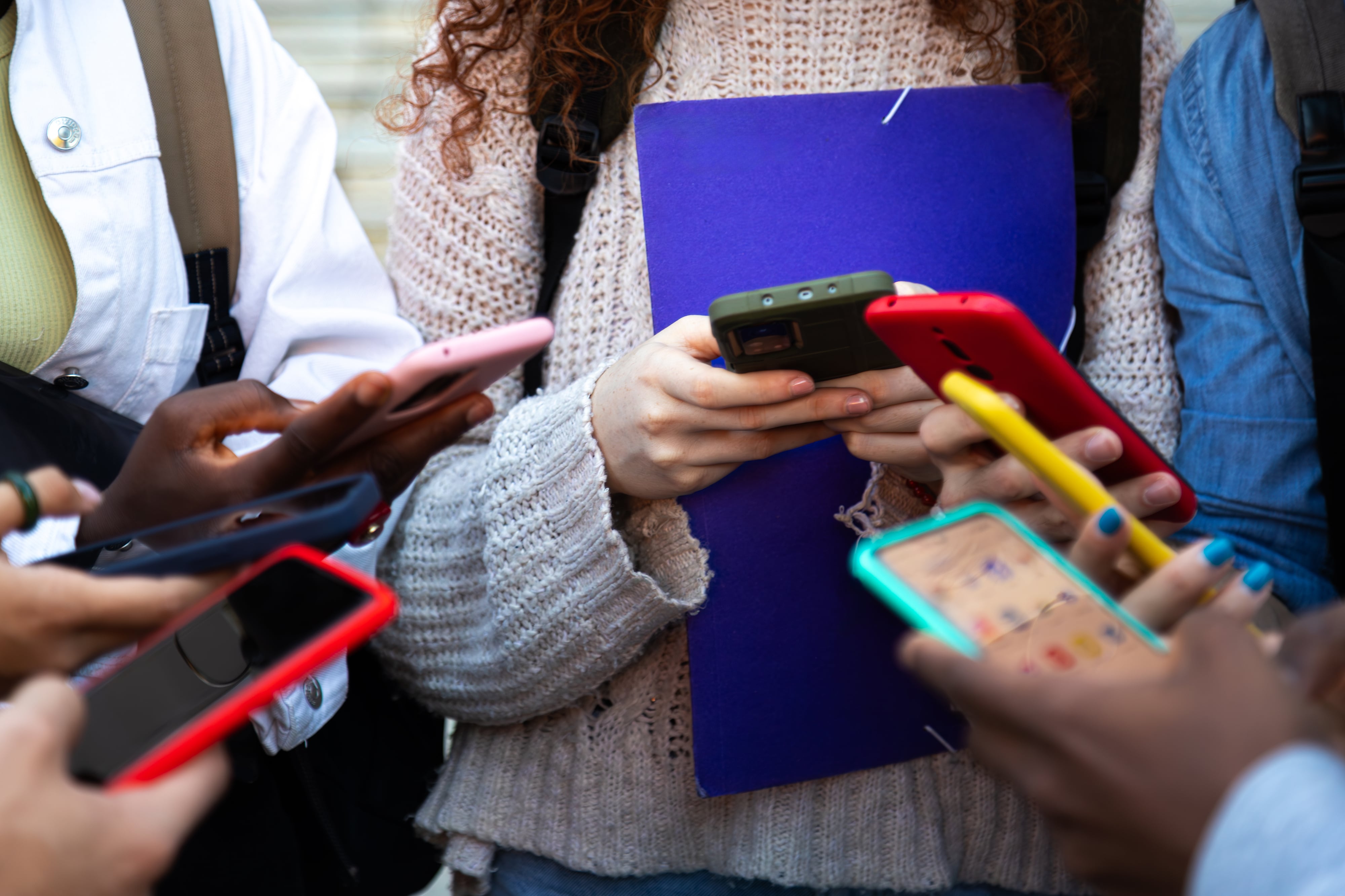Sign up for Chalkbeat Indiana’s free daily newsletter to keep up with Indianapolis Public Schools, Marion County’s township districts, and statewide education news.
Students are back in class. But their cell phones are probably not.
Before this school year, some Indiana schools may have had restrictions on students’ cell phone use. But now, all schools are now required to have policies banning “any portable wireless device” during class time due to a new state law.
This includes phones and other devices that provide communication between two parties. Districts, including charter schools, must adopt policies banning several types of devices during class time, although there are some exceptions related to health care and emergencies.
But lawmakers didn’t pass a one-size-fits-all cell phone ban. Each school district must come up with its own policy for exactly how student cell phone bans work.
And that’s where you come in. We want to know how it’s going at your school. Has the ban made a difference? Were there unexpected results? Have schools struggled to implement or enforce the student cell phone ban? Let us know below:
If you are having trouble viewing this form, go here.
MJ Slaby oversees Chalkbeat Indiana’s coverage as bureau chief. Contact MJ at mslaby@chalkbeat.org.





